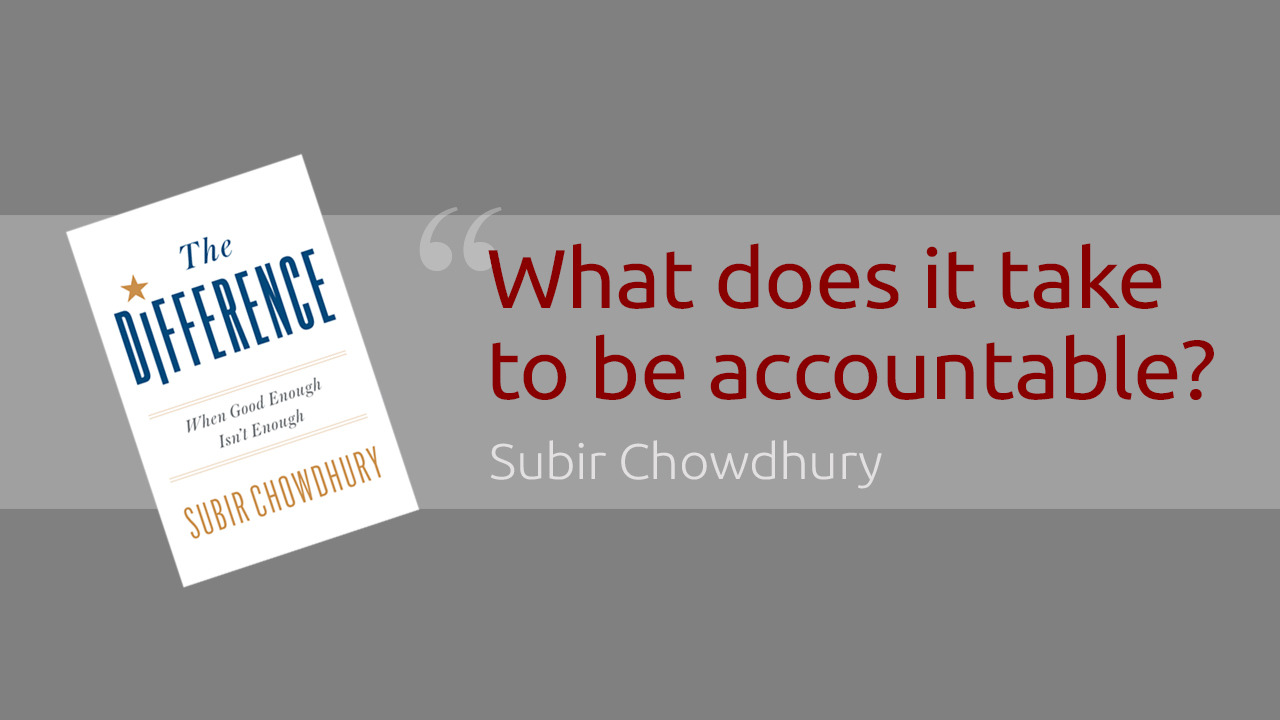Want people to be accountable? Then be accountable to them. Encourage people to speak up and not be afraid. Not everything you hear will be good news—but if someone is afraid to speak up, they’ll never embrace being accountable.
Quality & Me
Subir shares short stories about what people do to make a difference everywhere they go. We can make huge contributions to the way we function as a society by standing out as an example within our own community: at work, at our places of worship, among our colleagues, friends, and family. All it takes is the courage to step up and being straightforward, thoughtful, accountable, and resilient.
One of the components of developing a caring mindset is accountability.
Accountability is taking responsibility for your actions. It’s the “A” in STAR, and acronym I developed for what it takes to have a caring mindset.
But first, we need to take a step back. You can’t be accountable if you don’t know what’s going on.
You can’t know what’s going on if all you do is sit in your office, review spreadsheets, and commiserate with your peers.
If you want to know what’s going on in your organization – really going on – take a walk.
I tried for weeks to get a manager I was consulting with to connect with his team—things weren’t going well, and no one was being accountable. There was a clear disconnect between himself and his team of engineers. The manager blamed the engineers and vice versa.
“Let’s take a walk,” I told him. “Let’s go and talk to your team.”
I then heard every excuse under the sun – meetings, reports, no time. He finally admitted he wouldn’t know what to say to them.
Can you imagine? A manager who doesn’t know what to say to the people who work for him!
I told him, it’s easy: “Be yourself. Relax, smile, ask questions, and refrain from judging.”
Here’s my point: this manager was focused on processes—what people were doing. He wasn’t focused on the people aspect of problem-solving. He didn’t even know what to say to people.
Achieving exceptional results requires commitment to both processes and people. That’s why you need to get out of your chair and meet with the people who report to you—on their turf, and not in your office.
What someone says in your office doesn’t always reflect what’s really happening on the ground. People are afraid to accept accountability because they become intimidated. Meet them half way, and you’ll see a big difference!
Encourage people to speak up and not be afraid. Not everything you hear will be good news—but if someone is afraid to speak up, they’ll never embrace being accountable. There is a big difference between the action on the battlefield and the action in headquarters, miles behind the lines.
If you want accountability in your organization, make sure your team knows you respect, trust and believe in them.



















